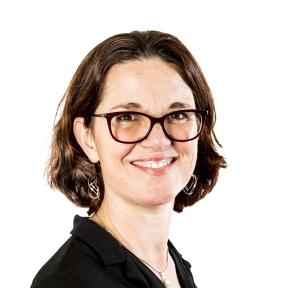Are repurposed drugs ready for use in cancer?

Are repurposed drugs ready for use in cancer?
Here’s the story of Amina, a young woman in her early thirties, who was contemplating starting a family with her husband. During this time, which should be filled with happy anticipation, she was unfortunately diagnosed with breast cancer. Fearing the impact of hormonal therapy on her fertility and wanting to avoid the side effects of chemo, she wanted to know if repurposed drugs could help treat her cancer.
Repurposed drugs are existing licensed drugs, used for new medical uses. The Anticancer Fund has an important research focus on drug repurposing, as we believe this may offer a safe, effective and affordable way to increase cancer patients’ treatment options.
We often get questions of cancer patients about drug repurposing through our personal service My Cancer Navigator: they are wondering if today we can use some drugs, developed for other conditions, for the treatment of cancer. And if we can, which ones? The answer is not straightforward as with many things, it depends on whom you are asking.
Many, often professionals in the medical field, will answer this question with a very clear no. They may state there is insufficient high-quality evidence, or that the limited available data are conflicting, and this is generally true.
Some organisations and individuals will reply with a resounding yes. Jane McClelland (1), the Care Oncology Clinic (2), Joe Tippens (3), some doctors, and many people on social media forums will provide very specific treatment recommendations, usually for a combination of drugs to treat pretty much any type of cancer.
At the Anticancer Fund, we take a more nuanced approach.
First, let’s be clear that we are very much in favour of the concept of repurposed drugs – they can potentially provide an accessible and safe(r) treatment option in addition to existing treatments. Therefore, we invest time in exploring and analysing the existing research on repurposed drugs and support well-designed clinical trials to further prove or disprove the usefulness of certain therapies. When the evidence is sufficient, the non-cancer drug can become a cancer drug, eventually part of a standard treatment, as was the case for instance for zoledronic acid, ATRA and steroids. At the Anticancer Fund we also engage with policymakers and regulators at the European level, so that access to proven repurposed drugs can be made possible.
So, what do we tell the patients and doctors who contact My Cancer Navigator and who have questions about repurposed drugs? We think there might be situations where the use of a repurposed drug could be considered, in a well-informed discussion between a patient and their doctor. Experimenting alone, or with a doctor who is not otherwise involved in the cancer treatment, is strongly discouraged: repurposed drugs are still drugs, and can have side effects and interactions with other treatments.
It is important to realise that for most drugs to date, the existing evidence for their use in cancer is very limited and of moderate to low quality. For instance, a case history of one person doing well on a specific treatment, is insufficient to draw any conclusions. However, if there are several such cases, as well as good preclinical evidence (=research done on cells in the lab or animal models), this may be a reason to conduct a larger clinical study.
Also important to know, even when there are solid data about the use of a drug in cancer, what applies to one specific subtype of cancer, cannot be extrapolated to all cancers in all stages.
What do we reply to the patient?
- We can research and summarise the available evidence for a specific drug in a specific cancer type.
- We can review the literature for known or potential interactions between a specific (repurposed) drug and a conventional therapy regimen.
What we cannot do:
- Give a list of repurposed drugs to take, or specific dosage regimens.
- Recommend a physician who can do so.
To conclude, if you are a cancer patient and you are wondering about specific repurposed drugs for your situation, we can support you by looking up the relevant information. The next step would be for you to review this with your oncologist and make a joined decision based on the potential risks and benefits, considering your medical history and treatments. That’s what we did for Amina, and she was relieved she could take an informed decision, together with her physician.
(1) https://www.howtostarvecancer.com/
(2) https://careoncology.com/
(3) https://www.mycancerstory.rocks/

